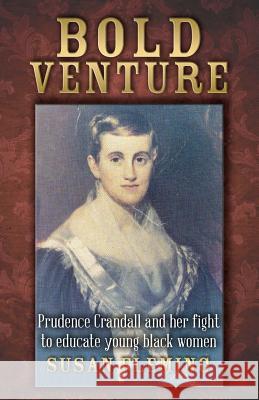Bold Venture: Prudence Crandall and her fight to educate young black women » książka
Bold Venture: Prudence Crandall and her fight to educate young black women
ISBN-13: 9781511941174 / Angielski / Miękka / 2015 / 114 str.
In the early nineteenth century education for girls was limited to the reading, writing, religion, and simple arithmetic offered at the local district schools. Boys had always been allowed to attend college or become apprenticed to skilled workmen. But girls had no such opportunities until pioneer educators began to establish seminaries for young women where they could receive advanced learning. In 1831 Prudence Crandall was proud that her reputation as an outstanding teacher had prompted the male leaders of the town to select her to head a girls' seminary in Canterbury, Connecticut. The residents of Canterbury were unanimous in their approval of the Female Boarding School. Prudence felt her life was progressing in a joyous upward path until the day Sarah Harris approached her. Sarah was a young black woman, so light skinned she could pass for white. Her parents were free blacks, hard working and respected in the community. Urgently, she presented her case: "Miss Crandall, I want to get a little more learning, enough to teach colored children. If you will admit me to your school, I shall forever be under the greatest obligation to you." Prudence knew how risky it would be to accept Sarah as a student. Admitting a black girl would stir up the prejudices of the townspeople. Did she want to jeopardize everything she had worked so hard for? But was it right to deny Sarah an education? Prudence thought long and hard before she responded to Sarah's request. The course of the rest of her life hinged on her answer.
Zawartość książki może nie spełniać oczekiwań – reklamacje nie obejmują treści, która mogła nie być redakcyjnie ani merytorycznie opracowana.











